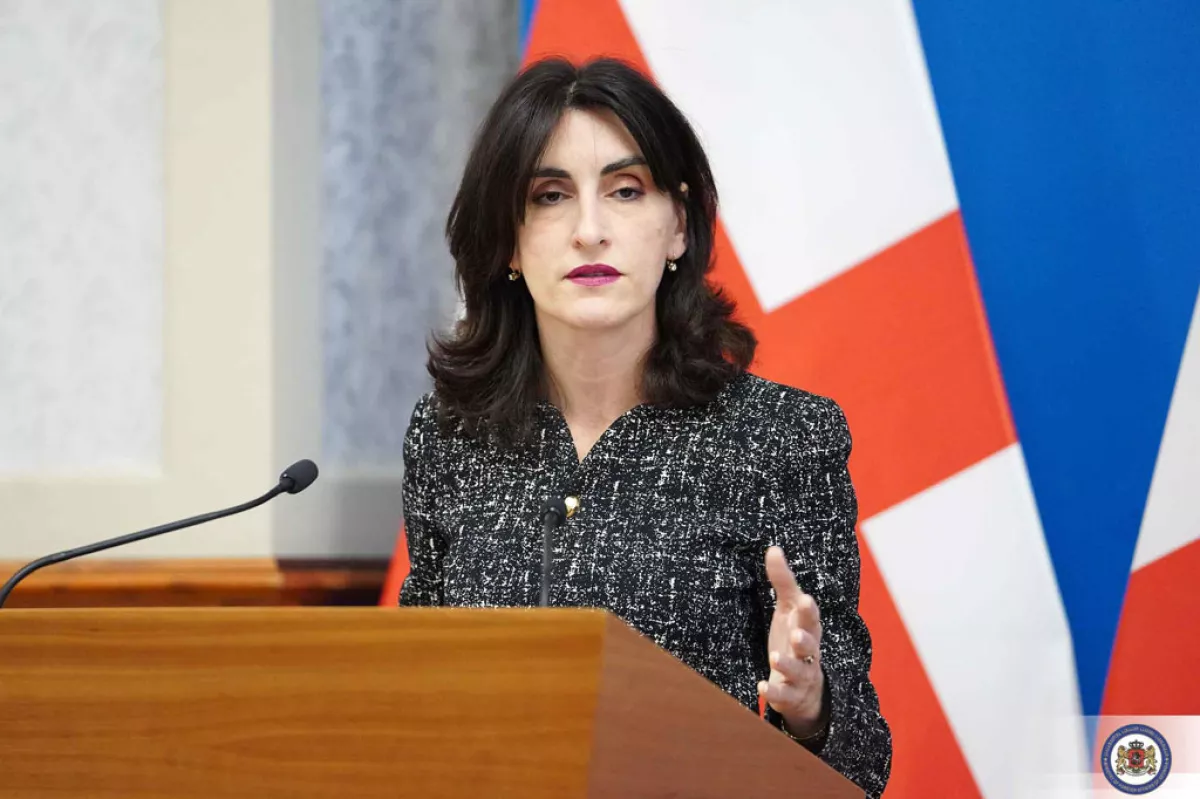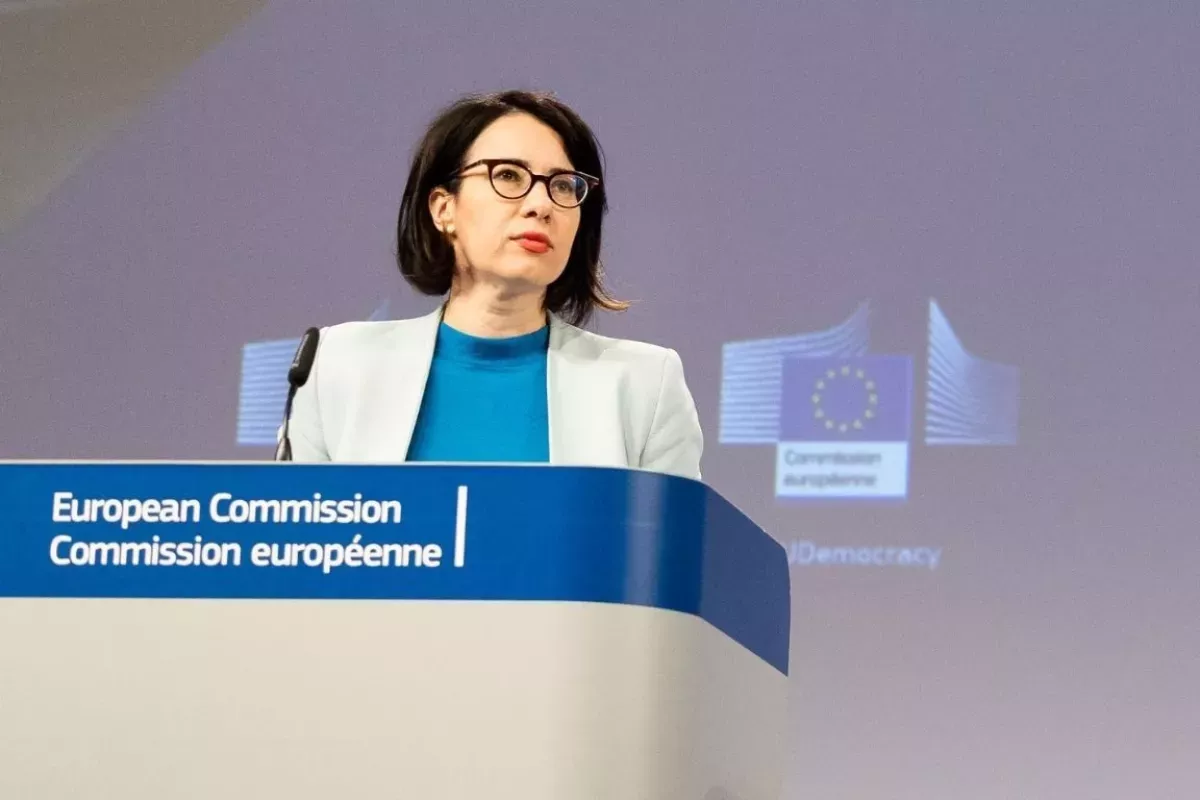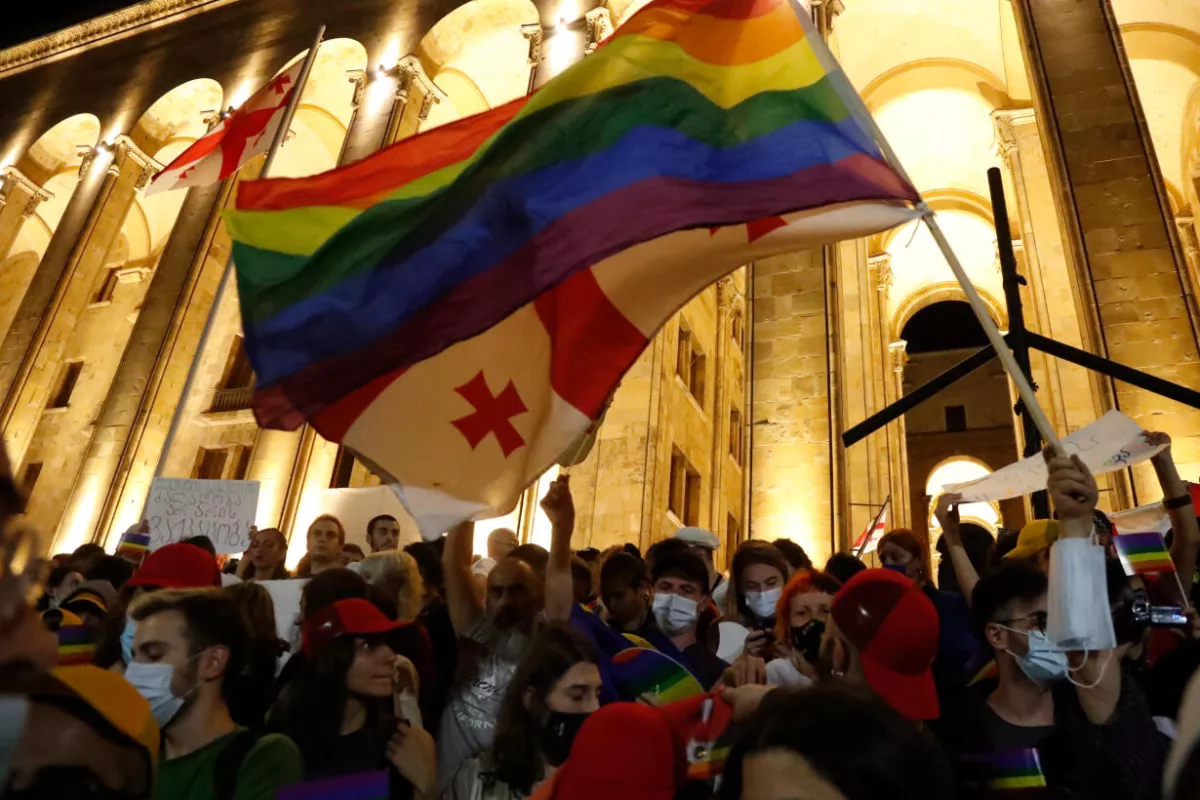Georgia says no to European blackmail Visa liberalisation at risk
In Tbilisi, there is no fear of the suspension of the visa-free regime with the EU. This became evident following an interview with Georgia’s Foreign Minister Maka Botchorishvili on the First Channel of the Georgian Public Broadcaster, in which she stated that there are no legal grounds for the EU to suspend the visa-free regime.

“No legal grounds exist today for revoking visa liberalisation. The Georgian government has always acted and continues to act in good faith to ensure this benefit remains available to Georgian citizens, and it is entirely thanks to this government that Georgia’s population today enjoys visa-free travel to European Union member states within the Schengen zone,” Botchorishvili said.
The Georgian Foreign Minister also called Brussels’ demands to repeal laws on the transparency of foreign financing and the ban on LGBT propaganda “fantasies,” noting that these demands are aimed at preserving the liberal visa regime in place since 2017.
“Naturally, we see that fantasies know no bounds. Many issues are being linked and connected to this matter,” said Maka Botchorishvili. According to her, the Georgian Foreign Ministry and other state agencies provide the EU with all necessary materials in a timely manner to ensure compliance with visa liberalisation.
“Naturally, we arrive at two laws that are currently being exploited to undermine Georgia’s interests, laws that have absolutely nothing to do with visa-free travel or our citizens’ freedom of movement within EU member states,” the minister noted.
Maka Botchorishvili stressed that the Georgian authorities “cannot betray our voters, those people who stand behind us, at the cost of any blackmail.” According to her, Brussels’ demands to withdraw the laws on foreign agents and on banning LGBT propaganda are “completely unacceptable.”
“Because transparency would have hindered the activities or operations of those organisations in the sense that it would have become transparent to our society who finances the politicians, and where our political opposition is financed from, how the so-called non-governmental sector and civil society participate in Georgian politics,” Botchorishvili said.

The statement by Georgia’s Foreign Minister came in response to a recent briefing in Brussels by European Commission spokesperson Anitta Hipper, who raised the possibility of sanctions against Georgia as well as the suspension of its visa-free regime. Hipper repeated claims of a “ huge democratic backsliding” allegedly committed by the ruling Georgian Dream party, pointing to the “persecution of journalists, protesters, and opposition politicians.” According to her, by September 15, all four leaders of the pro-Western coalition For Change—Zurab-Girchi Japaridze, Nika Gvaramia, Nika Melia, and Elene Khoshtaria—had ended up in prison.
“Our full solidarity goes with them and we call for their immediate release,” the European Commission representative said. She also reminded that the EU has already downgraded political contacts with Georgia and suspended financial assistance to the authorities, while increasing support for civil society.
At the same time, it is clear that Anitta Hipper’s statement does not reflect the position of all European politicians or citizens. The policies of Georgia’s current government are opposed by left-liberal circles in the EU, but this cannot be said of the right-conservative segment of the European establishment, which has recently been gaining strength.
If European liberals strongly object to Georgian Dream’s refusal to allow LGBT propaganda and parades, as well as its focus on traditional values, then European right-wing and conservative forces, on the contrary, see Georgia as a model to follow. Moreover, Hungary and Slovakia are firmly against cancelling visa-free travel for Georgian citizens within the EU. In the near future, several more countries may join them, as right-conservative forces are expected to strengthen after the upcoming elections.

A demonstrative suspension of Georgia’s visa-free regime under current circumstances is unlikely to appeal to Europe’s right-conservative forces and would only hand them additional arguments in upcoming elections. This is especially true given that European right-wing politicians accuse liberals of pursuing uncontrolled migration policies and “importing” migrants into the EU who are culturally and religiously distant from Europeans.
In the United Kingdom, though no longer part of the EU, a large anti-migration rally was recently held, featuring none other than the prominent American businessman and politician Elon Musk. The rally itself highlighted the growing influence of right-conservative forces in Europe. The slogans voiced against “foreign cultural” migration, so familiar on Britain’s streets, are shared by many conservative-minded citizens of EU countries.
In such a context, depriving citizens of Christian and conservative Georgia of visa-free travel to the EU is the last thing right-wing voters in Europe expect from Brussels. Although Poland has already launched an information campaign against Georgian migrants, accusing them of alleged “criminal tendencies,” in most other EU countries the attitude towards Georgians remains positive.
Moreover, suspending Georgia’s visa-free regime would bring the EU little tangible benefit in terms of supporting the pro-Western opposition or influencing Georgia’s domestic politics.
The opposition-led march “For Preserving Visa-Free Travel with the EU,” held in central Tbilisi on 13 September 2025, turned out to be sparsely attended. It demonstrated that, for the majority of Georgian society, the threat of visa-free travel being revoked is not a sufficient reason for mass protests or a “revolution.”
Thus, Maka Botchorishvili’s statement that the EU has no legal grounds to suspend the visa-free regime largely reflects the political impracticality of such a move.
For the current EU leadership, such a measure would bring little political dividend. It would not help to provoke a “revolution” in Georgia, but at the same time, it would give European right-wing forces grounds to accuse the European Commission of discriminating against conservative, tradition-defending Georgia, while promoting uncontrolled migration from “third world” countries.
By Vladimir Tskhvediani, Georgia, exclusively for Caliber.Az








